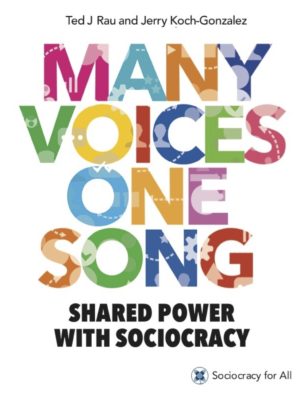 A wonderfully readable update on brain research is Jonah Lehrer’s How We Decide that looks at how our emotions affect decisions and what the brain tells us about it. Lehrer worked in the lab of Nobel Prize-winning neuroscientist Eric Kandel, is editor-at-large for Seed Magazine, and publishes regularly in major magazines and newspapers. He has both the education to interpret brain research and the ability to write about it clearly — welcome ability. And the results of this research are fascinating.
A wonderfully readable update on brain research is Jonah Lehrer’s How We Decide that looks at how our emotions affect decisions and what the brain tells us about it. Lehrer worked in the lab of Nobel Prize-winning neuroscientist Eric Kandel, is editor-at-large for Seed Magazine, and publishes regularly in major magazines and newspapers. He has both the education to interpret brain research and the ability to write about it clearly — welcome ability. And the results of this research are fascinating.
The brain is constantly growing and changing based on the information it receives, whether that information is emotional, social, or physical. Our “gut” reactions are fast and accurate because our brain has decoded the information faster than we could rationally analyze it. First we know, then we know we know. Unfortunately, our gut feelings are often difficult to explain or even understand and we ignore them, going instead for the response that sounds right.
One of the subjects Lehrer examines is expertise. The reason sociocratic organization works is that it establishes feedback loops that provide information about performance. Malcolm Gladwell has reported that people become proficient when they have worked at something for 10,000 hours. The Beatles were able to outperform other bands at such a young age because as teenagers they had a unique ability to perform frequently. Lehrer’s research shows that isn’t all. The expertise comes from the feedback received while gaining that experience. The interactions and measurements that come from audience responses and the musician’s experimentation. It isn’t the playing; it’s the recognition of mistakes. Analyzing one’s mistakes improves performance but recognizing mistakes is more likely to happen with an audience.
The sociocratic organizational structure is designed to ensure feedback. Measurement and analysis are fundamental at all levels. Looking at what is working and what is not. Lehrer talks with Bill Robertie who has become a world-class expert not only chess but in poker and backgammon. Unless all that practice includes analysis of his decisions and their result, his play would not have improved. And negative feedback, he says, was the best kind. We learn from our mistakes.
A fascinating study by Carol Dweck, a psychologist at Stanford, looked at the results of praise on children. Half were praised for their intelligence, the other half for their hard work. In later studies, those who had been praised for hard work actually performed better. Those praised for their intelligence were careful to choose easy work in order to retain the view of themselves as intelligent while those praised for working hard, worked harder and chose the harder studies that allowed them learn more. The differences were not just “statistically significant”. Those praised for working harder raised their scores by 30%. The scores for those praised for their intelligence fell by 20%.
Loss aversion fundamentally affects our decision-making in all areas of our lives, and opens us to manipulation by marketers and unreasonable responses to news, to information about the stock market, for example.
Impulsivity is a higher predictor of low SAT scores than academic performance as early as kindergarten. Brain development in children diagnosed with ADHD is on average 3.5 years behind that of other children. Brain research looks at all these phenomenon and studies how one brain functions in the face of the same emotional desires as another, and which one is successful in achieving a satisfactory solution. And the results are unexpected and unpredictable.
The ability to achieve a clean-slate, a brain ready for making new association that lead to new insights, is essential. The insight is achieved in a flash of energy, then the slate is clean again, waiting. Herbert Simon said, “A wealth of information creates a poverty of attention.”
Lehrer also reports on studies of satisfaction — one shows that for each hour of increased time commuting, one needs to earn $40,000 more to make the commute worth it.
A striking conclusion is that anyone who wants to make difficult decisions better or more often, needs a more emotional thought process. Once one has the education and the information, time spent consciously contemplating the alternatives will probably be counter-productive. “The hardest calls are the ones that require the most feeling.”
Research like this has led to a change in how authority is viewed everywhere from the cockpit of major airlines to hospital surgeries. Staffs are trained to question authority when things don’t feel right. Don’t presume that the person with the degree or the title is making the best decision. Decision-making in complex pressure-driven situations is too hard for one brain to sort out.
An excellent and well-written book that is highly recommended.
How We Decide by Jonah Lehrer. Boston and NY: Houghton Mifflin Harcourt, 2009. To buy the paperback at Amazon.
Categories: Books Videos Websites, Decisions and Power, In Our Schools

